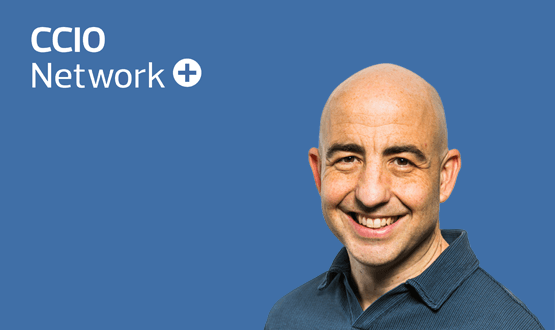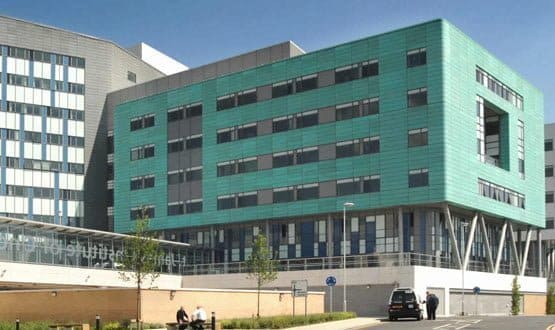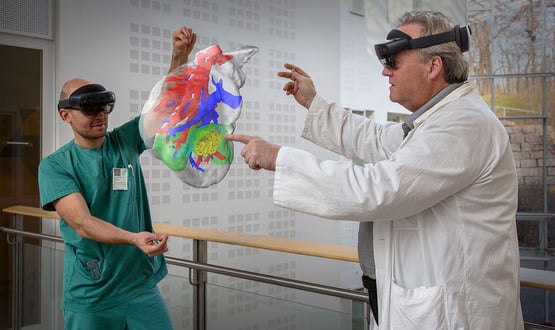The CCIO Profile: Andy Webster, Leeds Teaching Hospitals
- 28 November 2019

After a somewhat brief absence – our profile series is back with a bang. First up, we have Andy Webster who is the CCIO at Leeds Teaching Hospitals NHS Trust. Andy talks about advice he would give fellow NHS CCIOs and who he would like to invite round for dinner.
Why did you become an NHS CCIO?
The opportunity for the clinical and medical information lead came up and one of my colleagues persuaded me to apply.
Within your organisation, what is the most significant digital achievement of the past 12 months?
What made a difference was when we switched to GP Connect earlier this year and this was really transformational for clinicians.
What will be the most significant of the next 12 months?
The main thing at Leeds will be to improve the experience for our clinicians – we need to invest in infrastructure. Some of our clinicians are waiting 10 to 15 minutes to login to systems so we are planning to invest in infrastructure over the next five years.
What’s the biggest barrier to being a more effective CCIO?
A barrier our clinicians face is managing expectation as there’s only so much we can do with our EPR.
Also we have to get the maximum benefit with the money that we have as well as aligning with national and corporate priorities.
What’s the biggest barrier the NHS faces overall in achieving digital transformation?
Culture is one of the most important thing we have to change along with the mindset of clinicians.
If you have one piece of advice for other NHS CCIOs, would it be?
Clinical engagement is really important.
What’s the worst job you’ve ever had and why?
This is a difficult question as I have had many jobs and generally being the eternal optimist, I have got something positive out of all of them.
Probably the “worst” job I have to do is as a clinician, telling relatives that a close family member has had a life changing event. In emergency medicine you are often meeting the family for the first time, so it is important, however difficult your shift has been, to focus on the family and take great care in how this information is communicated to them. The brief encounter we have with them is something they may remember for a long time.
If you could invite three people, alive or dead, to dinner who would they be?
As a Liverpool fan, Jurgen Klopp would be at the top of the list – he has made football fun to watch and delivered success by changing the culture to make people believe and work together – the route for any successful organisation.
For the other 2 places, Stephen Fry, who was our rector when I was a student in Dundee, and a very funny but intelligent man. Brilliant in Blackadder, Jeeves & Wooster and many more.
And maybe to learn something from one of the best innovators of our time, Steve Jobs, who revolutionised our technology despite many being sceptical at the time.
What’s the background image on your home computer?
Rather sadly it is one of the default Windows 10 screens with a backdrop that looks like big blue balloons.
What’s your favourite piece of technology at home and why?
My wife would say my phone as it never seems to leave my side, I probably agree. If we look at how powerful these devices are now, you can use it to organise your life, shop, watch movies, and it even allows you to speak to people (as I tell my kids, it is the primary function and why we bought them a phone).
If you could have any other job, what would it be?
Well, if I wasn’t an emergency physician, maybe the next best thing would have been a starring role in ER. The reason I am in my specialty now.
In a film of your life, who would play you?
Patrick Stewart because he is a team leader and generally loved by his crew.
If you are a CIO or CCIO working in the NHS and would like to take part in our profile series, email news@digitalhealth.net.





3 Comments
Chief Clinical Information Officer and Electronic Patient Record I believe.
A good profile.
What does CCIO and EPR stand for?
So glad to see you’re still kickin’ it!
Comments are closed.